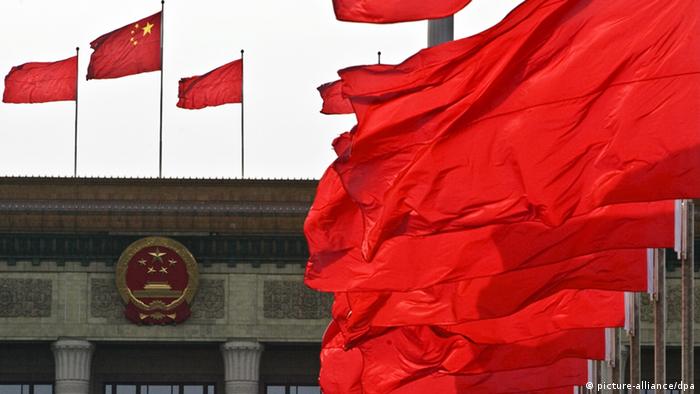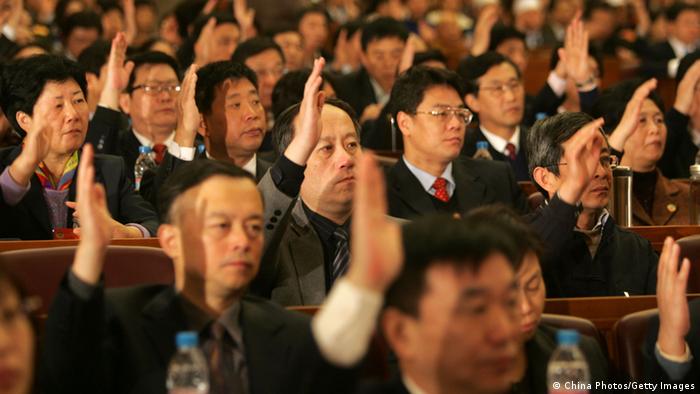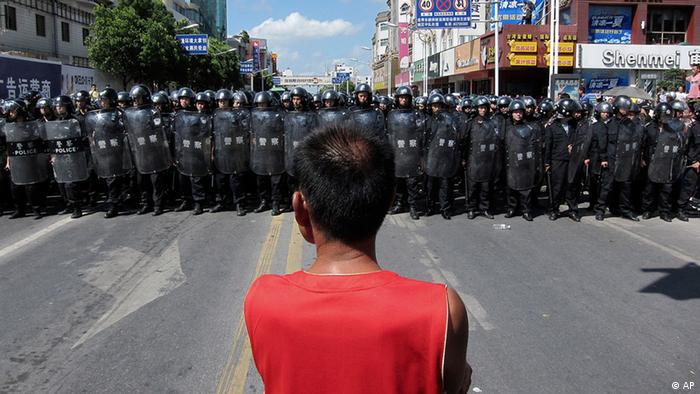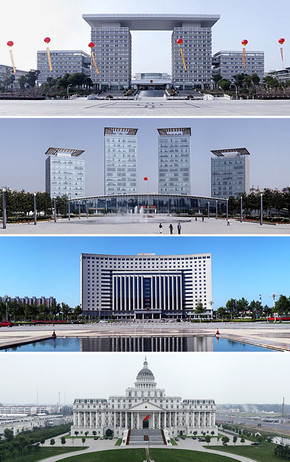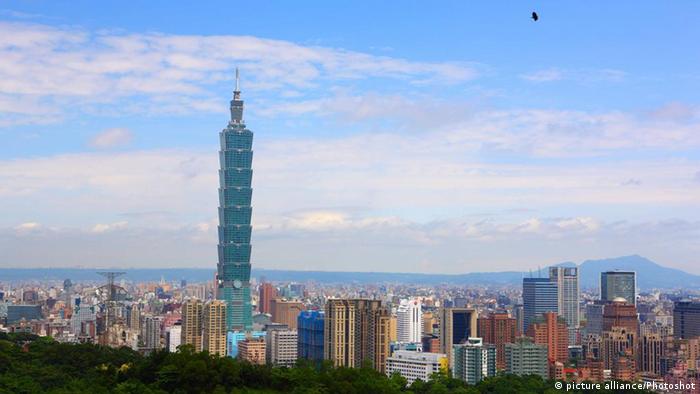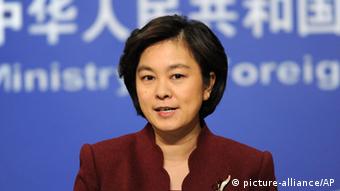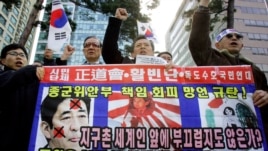專欄作者
嬰兒奶粉擋住中國強國之路
喬·諾切拉 2013年07月30日
《紐約時報》上周五的
頭版發表了一篇由黃安偉(Edward
Wong)撰寫的精彩文章,與許多大家可能讀到的任何同主題文章一樣,它很好地概括了中國及其經濟目前面臨的問題。中國正努力從一個高速增長的出口導向型
的發展中國家,轉型為更成熟的經濟體,期間問題不斷,而這些問題可能阻撓它成為自身夢寐以求的那種經濟強國,而且,它們幾乎全部屬於自食其果。
黃安偉的文章單單寫的是嬰幼兒配方奶粉。更具體地說,是有
關係和財力的中國家長撇下國內供應充足的奶粉,競相購買外國奶粉的故事。他們請人到英國等地的商店代購,或者是購買從香港走私過來的產品。在香港,走私嬰
幼兒配方奶粉如今已成為一種嚴重罪行。中國的家長主要是想要確保,餵給孩子的奶粉未經任何中國企業染指。
- 檢視大圖
 Fred R. Conrad/The New York Times喬·諾切拉
Fred R. Conrad/The New York Times喬·諾切拉
實際上,不久前的中國之行讓我知道,中國消費者不信任的國產商品為數眾多。近年來,食用油、蛋和肉類等各種食品安全醜聞層出不窮,這還只是個開始。幾個月前,《時代》周刊(Time)報道,三人因加工病死豬肉而遭曝光。幾年前,中國生產的血液稀釋劑「肝素」被認為與81宗死亡有關。就連國產車也不受中國消費者的青睞,外國車型佔領了中國市場,因為消費者擔心有人偷工減料(或者更糟糕),可能導致車輛無法使用。
問題一:中國正努力打造與其出口經濟相當的國內經濟之時,
人們對中國企業卻完全沒有信心。在上海生活的一名美國商人告訴我(由於擔心生意受影響,他要求匿名),「這不是打造品牌的問題」。他說,而是消費者感覺,
無論是哪個行業,都有太多的中國商人為了賺錢而不惜欺騙消費者。
由於中國商界偷工減料成性,的確需要政府通過監管和執法來
改變這種風氣。但是,儘管中央政府極其樂於通過看上去很美的法規,但基本不執行,也不存在真正的監管文化。此為問題二。省級政府本應對食品供應等問題進行
監管,卻往往不是成為幫凶,就是視而不見,因為他們害怕,重拳出擊可能會影響經濟增長。而官員考核幾乎只注重經濟增長。此為問題三:糟糕的激勵機制。
假如你的汽車因供應商出售的問題配件6個月就報廢,亦或你的孩子因受污染的奶粉而死亡,又會如何?答案是你什麼都做不了。的確,每當大丑聞爆發,都有些壞蛋進監獄,但是,就算是最大的醜聞也沒有帶來系統性的改變。也沒有任何途徑可以在法庭上尋求賠償,而在西方,這一直是讓企業遵紀守法的一個原因。此為問題四:缺乏真正的法治。
正如黃安偉在文章中寫到的那樣,中國政府正以價格壟斷為由
調查在中國銷售嬰幼兒配方奶粉的外企。(醜聞爆發之後,外國配方奶粉的單位價格上漲了30%。)不管存不存在價格壟斷——背後的原因更可能是市場的力量
——這種反應正是問題所在:政府沒有加強監管來讓消費者對本國產品產生信心,而是轉而想方設法讓出售本國民眾所需產品的生產商日子更不好過。
當然了,在美國,譴責監管已成為保守派的一種信仰,他們聲
稱,監管打擊企業、阻礙經濟增長。不過,請想一想,上世紀之交的美國與今天的中國一樣,充斥着各種造假專家。賣萬能蛇油的人比比皆是,食品安全問題巨大。
不過,1906年,厄普頓·辛克萊(Upton Sinclair)發表了名為《屠場》(The Jungle)的小說,揭露肉類加工業的內幕。資深中國法專家陸思禮(Stanley Lubman)最近在《華爾街日報》(The Wall Street Journal)上發表了一篇博客文章。他在文中指出,正是《屠場》一書促使西奧多·羅斯福(Theodore Roosevelt)提出設立美國食品與藥品管理局(Food and Drug Administration)。該局繼而對肉類加工等諸多領域進行了改革,讓消費者對吃用之商品產生了信心。
這正是中國目前亟需的東西。奶粉不過是揭開了冰山一角。
翻譯:黃錚*****
悉尼前美國中央情報局局長海登(Michael Hayden)稱,中國電信康采恩華為從事商務間諜活動。海登週五(7月19日)對《澳大利亞金融評論報》表示,他確信,中國對西方進行無所不包的間諜活動,華為為北京當局蒐集並提供秘密情報。海登稱,毋庸置疑,華為是對美國和澳大利亞的國家安全的威脅。美、英、澳等國均指控華為與當局關係密切,為其提供間諜裝備和網絡襲擊設備。華為對此加以否認。海登稱,西方情報機構掌握有華為受北京旨意從事間諜活動的證據。不過,作為前中情局負責人,他不能公佈細節。去年,美國國會通過一項法案,規定未來不再邀請華為參與美國國家項目競標。澳大利亞政府已將華為排除在寬帶項目競標之外。
----
英美加紐澳防駭 情報局禁聯想電腦
 |
| 英美為首的「五眼」情報聯盟國家,傳出聯合抵制中國聯想電腦產品。圖為聯想集團五月間在香港展出的平板電腦與手機。(路透) |
〔編譯魏國金/綜合報導〕「澳洲金融評論報」報導指出,英國情報單位測試發現中國聯想電腦的電路被修改,致使該品牌電腦出現「後門」,容易被駭入,這項發現導致英國、美國、澳洲、加拿大、紐西蘭五國組成的「五眼」情報聯盟,下令轄下的情報單位禁用聯想電腦。
報導指出,英國情報單位軍情五處(MI5)與政府通訊總部(GCHQ)對聯想電腦進行測試,結果發現電腦的電路已被修改,使其得以在使用者不知情的情況下,遠端存取該電腦。
報導說,據悉在英國實驗室發現聯想電腦這些硬體與「韌體」(firmware,電腦硬碟與軟體間的連結)的弱點後,該品牌電腦自二○○○年代中期起遭到英國情報單位抵制。
聯想「後門」 可遠端遙控電腦
「澳洲金融評論報」說,科學家已辨識出聯想電腦所用晶片中的高度機密「後門」,這些極度難以鑑別的「後門」可從遠端啟動,以阻止目標電腦運作或取得其內容。
報導說,雖然公部門仍使用聯想電腦,處理非敏感性業務,不過從美國的中央情報局到英國的軍情五處、軍情六處等單位,只要是機密文件網路皆拒絕使用聯想電腦。
聯想電腦對上述指稱表示訝異,並否認其電腦有任何缺點。總部設在北京的聯想電腦獲中國政府間接支持,官方機構中國科學院持有聯想控股逾三分之一股份,是聯想集團最大股東。
聯想於二○○五年購入國際商業機器公司(IBM)的個人電腦部門後,迅速成為全球科技產業巨擘,去年營收達兩百九十億美元,市佔率近十七%,為全球個人電腦最大製造商。
聯想是繼電信製造商華為公司之後,又一家其硬體引發安全疑慮、並與中國政府有關的公司。今年初華為被禁止參與價值高達兩百四十億英鎊的澳洲寬頻建設投標競爭。本月間,美國前中情局長海登也在接受「澳洲金融評論報」訪問時指控華為,將國外的電信系統細節提供給中國政府。
******
新聞報導清華教授炮製奇文 招來“板磚”無數清華大學教授胡鞍鋼在官媒發表文章《人民社會優於公民社會》,稱中共領導下的人民社會是和諧社會,是“中國夢”最大動力,而中國夢優於“美國夢”、“歐洲夢”,網友吐槽:胡為當國師寫就“馬屁文”。(德國之聲中文網)7月19日,清華大學教授胡鞍鋼在官媒《人民日報》海外版上發表文章《人民社會優於公民社會》。文章稱:"人民社會是中國的重大理論創新和實踐創新。與西方公民社會相比,人民社會更具優越性。人民社會的領導者是中國共產黨,根本特徵是和諧社會;13億人民共建、共享的人民社會,是實現偉大復興的社會基礎,是實現'中國夢'的最大推動力"等,因文章中對習近平早前提出的"中華民族偉大復興"、"中國夢"等進行直白的"謳歌",此文一出立即招致網友"板磚"無數,認為這篇文章和此前官方學者"反憲"套路一致。多位網友拋出"請組織批准我為人民"博文;微博網友"Starknight"表示"人民是個政治概念,差不多等於剔除了異己分子的公民。人民社會的風險在於,任何人都可能被站到人民的對立面去";經濟學家趙曉評論道:"在攻擊完憲政後,現在又有人開始攻擊公民社會。公民和人民一字之差,有何本質不同?答案便是:這世上無人可以自稱人民,但人人都是公民。以人民取代公民,就可以堂而皇之地剝奪每個人的公民權,如此不僅搶西瓜、搶民企、搶屍體天經地義,而且可以一代代一直搶下去--而你,休想反抗!";中國新媒體人北風也認為官方學者"反智無底線。"
胡鞍鋼現為清華大學國情研究中心主任、清華大學公共管理學院教授、博士生導師。近年常有"主旋律"作品問世:2011至2012年間,發表《人間正道》、《2030中國:邁向共同富裕》、《中國:創新綠色發展》;2012年他還圍繞著中共十八大主題,撰寫了17篇國情報告;2013年,他的代表作為《中國集體領導體制》《中國集思廣益型決策》《中國式共識型決策》,此篇《人民社會優於公民社會》再將其推至"頂峰"。中國學者吳祚來總結道:"胡鞍鋼的一篇論文還不及我的小微博論證充分,人民社會優於公民社會,人民聽黨的,但公民們要黨聽選票的,用選票決定執政黨與最高領導人,所以公民社會是個壞社會,不聽黨媽的話,不是好孩子們。"旅居荷蘭的獨立評論人立裡向德國之聲表示,胡鞍鋼及其它類似的御用學者文章,大抵是捕捉中共高層意識形態動向而成。在這篇文章中,胡鞍鋼砲制了一個新的詞語"人民社會":"根本就是新造了一個詞'人民社會',通過捏造新概念的方式編造意識形態的語言,象《1984》(英國左派作家喬治.奧威爾在上世紀40年代出版的政治寓言小說)中的'NewSpeak'就是通過編造新話來說一套理論,完全脫離邏輯和常識,因為他自己定義了新概念,就完全可以隨心所欲的說了;其實他文章中的社會主義社會也不是真正的社會主義社會,他突出的是黨,那其實不是全體人民。"A protester stands in front of a lines of riot police officers Saturday July 28, 2012 in Qidong, Jiangsu Province, China. Authorities in eastern China dropped plans for a water-discharge project Saturday after thousands of protesters angry about pollution took to the streets, in the latest of many such confrontations in a country where three decades of rapid economic expansion have come at an environmental price. (Foto:Eugene Hoshiko/AP/dapd) "人民社會"很和諧?立裡認為從不久前數位御用學者推出"宇宙真理"、"反憲"說等到胡的文章,無非是在表達官方意識形態,也反映出中共高層從早前的"猶抱瑟琶半遮面"式的反對"西方民主制度"及"普世價值",跨越到當前習近平的"三個自信"直白否定"民主、憲政"等:"現在有個傾向'理論自信、道路自信'等,開始反智了,這是習近平的一大特點,和前幾任有些不同,其實是漸變的,從胡錦濤時代就已經發生了,以前還裝,現在他們已經不裝了,覺得自己的羽毛已經豐滿了,可以和歐美進行自由對抗了。"採訪最後立裡也隔空向胡鞍鋼喊話,作為清華名校學者,寫這類文章在基本邏輯的基礎上,也要有常識,像"人民"、"社會主義"甚至"共產黨"等概念皆來自西方,他將中國與西方割裂時,無論從學者學識、還是風骨,其形象盡失。作者:吳雨責編:葉宣
清华大学教授胡鞍钢在官媒发表文章《人民社会优于公民社会》,称中共领导下的人民社会是和谐社会,是“中国梦”最大动力,而中国梦优于“美国梦”、“欧洲梦”,网友吐槽:胡为当国师写就“马屁文”。
(德国之声中文网)7月19日,清华大学教授胡鞍钢在官媒《人民日报》海外版上发表文章《人民社会优于公民社会》。文章称:"人民社会是中国的重大理论创
新和实践创新。与西方公民社会相比,人民社会更具优越性。人民社会的领导者是中国共产党,根本特征是和谐社会;13亿人民共建、共享的人民社会,是实现伟
大复兴的社会基础,是实现‘中国梦’的最大推动力"等,因文章中对习近平早前提出的"中华民族伟大复兴"、"中国梦"等进行直白的"讴歌",此文一出立即
招致网友"板砖"无数,认为这篇文章和此前官方学者"反宪"套路一致。
多位网友抛出"请组织批准我为人民"博文;微博网友"Starknight"表示"人民是个政治概念,差不多等于剔除了异己分子的公民。人民社会的风险在 于,任何人都可能被站到人民的对立面去";经济学家赵晓评论道:"在攻击完宪政后,现在又有人开始攻击公民社会。公民和人民一字之差,有何本质不同?答案 便是:这世上无人可以自称人民,但人人都是公民。以人民取代公民,就可以堂而皇之地剥夺每个人的公民权,如此不仅抢西瓜、抢民企、抢尸体天经地义,而且可 以一代代一直抢下去--而你,休想反抗!";中国新媒体人北风也认为官方学者"反智无底线。"
胡鞍钢现为清华大学国情研究中心主任、清华大学公共管理学院教授、博士生导师。近年常有"主旋律"作品问世:2011至2012年间,发表《人间正道》、 《2030中国:迈向共同富裕》、《中国:创新绿色发展》;2012年他还围绕着中共十八大主题,撰写了17篇国情报告;2013年,他的代表作为《中国 集体领导体制》《中国集思广益型决策》《中国式共识型决策》,此篇《人民社会优于公民社会》再将其推至"顶峰"。中国学者吴祚来总结道:"胡鞍钢的一篇论 文还不及我的小微博论证充分,人民社会优于公民社会,人民听党的,但公民们要党听选票的,用选票决定执政党与最高领导人,所以公民社会是个坏社会,不听党 妈的话,不是好孩子们。"
旅居荷兰的独立评论人立里向德国之声表示,胡鞍钢及其它类似的御用学者文章,大抵是捕捉中共高层意识形态动向而成。在这篇文章中,胡鞍钢炮制了一个新的词 语"人民社会":"根本就是新造了一个词'人民社会',通过捏造新概念的方式编造意识形态的语言,象《1984》(英国左派作家乔治.奥威尔在上世纪40 年代出版的政治寓言小说)中的'NewSpeak'就是通过编造新话来说一套理论,完全脱离逻辑和常识,因为他自己定义了新概念,就完全可以随心所欲的说 了;其实他文章中的社会主义社会也不是真正的社会主义社会,他突出的是党,那其实不是全体人民。"
立里认为从不久前数位御用学者推出"宇宙真理"、"反宪"说等到胡的文章,无非是在表达官方意识形态,也反映出中共高层从早前的"犹抱瑟琶半遮面"式的反 对"西方民主制度"及"普世价值",跨越到当前习近平的"三个自信 "直白否定"民主、宪政"等:"现在有个倾向'理论自信、道路自信'等,开始反智了,这是习近平的一大特点,和前几任有些不同,其实是渐变的,从胡锦涛时 代就已经发生了,以前还装,现在他们已经不装了,觉得自己的羽毛已经丰满了,可以和欧美进行自由对抗了。"
采访最后立里也隔空向胡鞍钢喊话,作为清华名校学者,写这类文章在基本逻辑的基础上,也要有常识,像"人民"、"社会主义"甚至"共产党"等概念皆来自西方,他将中国与西方割裂时,无论从学者学识、还是风骨,其形象尽失。
作者:吴雨
责编:叶宣
多位网友抛出"请组织批准我为人民"博文;微博网友"Starknight"表示"人民是个政治概念,差不多等于剔除了异己分子的公民。人民社会的风险在 于,任何人都可能被站到人民的对立面去";经济学家赵晓评论道:"在攻击完宪政后,现在又有人开始攻击公民社会。公民和人民一字之差,有何本质不同?答案 便是:这世上无人可以自称人民,但人人都是公民。以人民取代公民,就可以堂而皇之地剥夺每个人的公民权,如此不仅抢西瓜、抢民企、抢尸体天经地义,而且可 以一代代一直抢下去--而你,休想反抗!";中国新媒体人北风也认为官方学者"反智无底线。"
胡鞍钢现为清华大学国情研究中心主任、清华大学公共管理学院教授、博士生导师。近年常有"主旋律"作品问世:2011至2012年间,发表《人间正道》、 《2030中国:迈向共同富裕》、《中国:创新绿色发展》;2012年他还围绕着中共十八大主题,撰写了17篇国情报告;2013年,他的代表作为《中国 集体领导体制》《中国集思广益型决策》《中国式共识型决策》,此篇《人民社会优于公民社会》再将其推至"顶峰"。中国学者吴祚来总结道:"胡鞍钢的一篇论 文还不及我的小微博论证充分,人民社会优于公民社会,人民听党的,但公民们要党听选票的,用选票决定执政党与最高领导人,所以公民社会是个坏社会,不听党 妈的话,不是好孩子们。"
旅居荷兰的独立评论人立里向德国之声表示,胡鞍钢及其它类似的御用学者文章,大抵是捕捉中共高层意识形态动向而成。在这篇文章中,胡鞍钢炮制了一个新的词 语"人民社会":"根本就是新造了一个词'人民社会',通过捏造新概念的方式编造意识形态的语言,象《1984》(英国左派作家乔治.奥威尔在上世纪40 年代出版的政治寓言小说)中的'NewSpeak'就是通过编造新话来说一套理论,完全脱离逻辑和常识,因为他自己定义了新概念,就完全可以随心所欲的说 了;其实他文章中的社会主义社会也不是真正的社会主义社会,他突出的是党,那其实不是全体人民。"
立里认为从不久前数位御用学者推出"宇宙真理"、"反宪"说等到胡的文章,无非是在表达官方意识形态,也反映出中共高层从早前的"犹抱瑟琶半遮面"式的反 对"西方民主制度"及"普世价值",跨越到当前习近平的"三个自信 "直白否定"民主、宪政"等:"现在有个倾向'理论自信、道路自信'等,开始反智了,这是习近平的一大特点,和前几任有些不同,其实是渐变的,从胡锦涛时 代就已经发生了,以前还装,现在他们已经不装了,觉得自己的羽毛已经丰满了,可以和欧美进行自由对抗了。"
采访最后立里也隔空向胡鞍钢喊话,作为清华名校学者,写这类文章在基本逻辑的基础上,也要有常识,像"人民"、"社会主义"甚至"共产党"等概念皆来自西方,他将中国与西方割裂时,无论从学者学识、还是风骨,其形象尽失。
作者:吴雨
责编:叶宣
